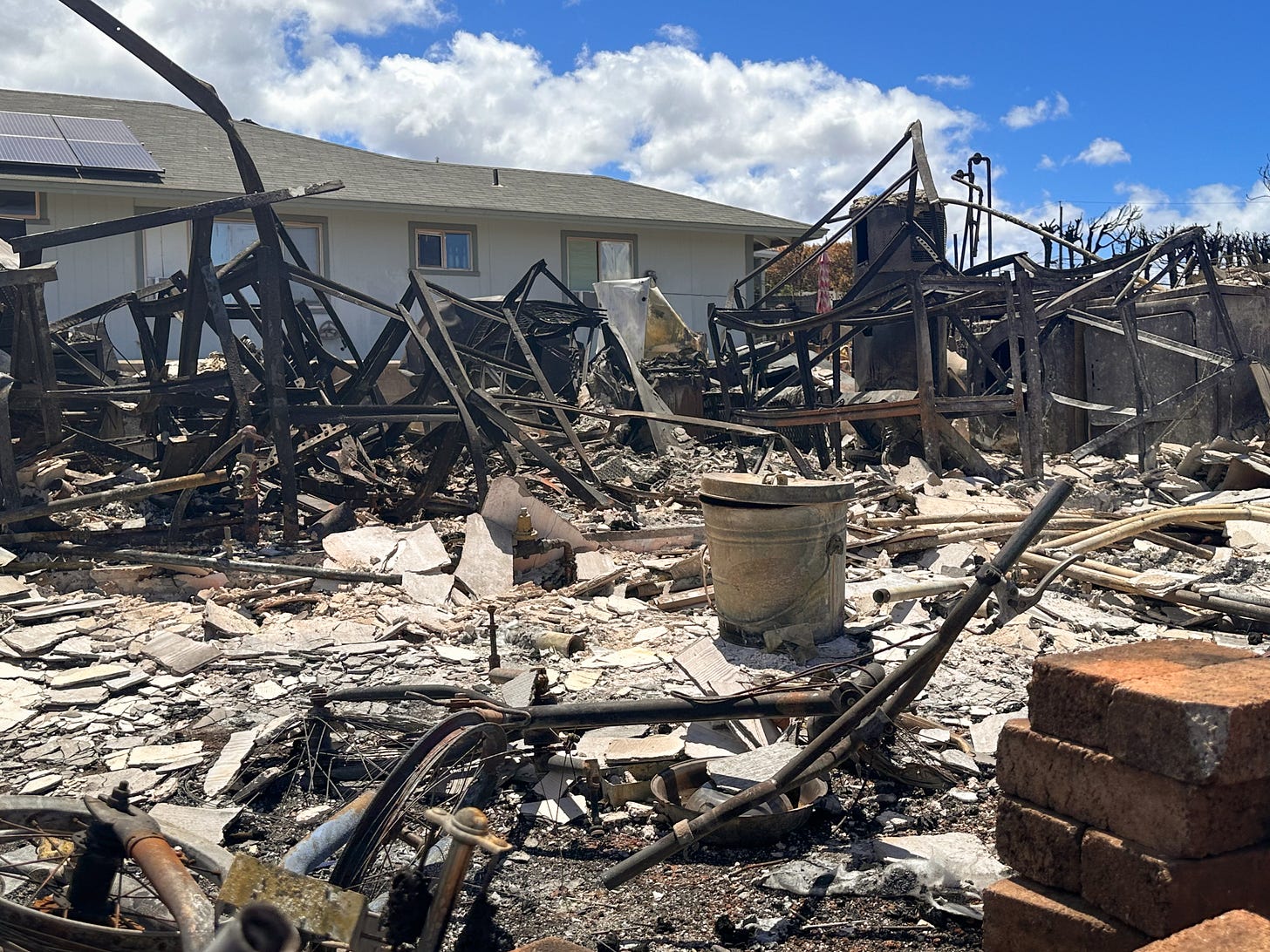Defiant Hawaii sues Big Oil just a day after Trump's DOJ takes 'unprecedented' legal action
Legal experts told Landmark they have never seen the federal government sue to preemptively block another, third-party lawsuit.
If the Trump administration had hoped to scare Hawaii this week when it filed an unusual lawsuit against the island state seeking an order blocking it from launching a climate accountability case against major oil and gas companies — that hope has clearly fallen flat.
Instead, a defiant Hawaii on Thursday became the 10th U.S. state* to sue the likes of Exxon, Chevron and numerous other companies over their role in causing climate change, claiming they are on the hook for billions of dollars in damages after allegedly lying to the public for decades about the dangers of fossil fuels.
If the legal claims — public nuisance, trespass, deceptive trade practices and others — weren’t themselves unprecedented, the backdrop of the case coming just hours after the Trump administration’s attack opened a remarkable new chapter in the climate change legal fight.
Hawaii Attorney General Anne Lopez said the state “will not be deterred,” and highlighted a growing tension between states’ rights and the federal government on this issue.
“The use of the United States Department of Justice to fight on behalf of the fossil fuel industry is deeply disturbing and is a direct attack on Hawaiʻi’s rights as a sovereign state,” Lopez said in a statement.
Since taking office in January, President Donald Trump has aggressively pursued policies to help support the fossil fuel industry, including through policies to make it easier to drill on public lands and by issuing a string of permits to make it easier to ship natural gas overseas.
It has also been reported that a shield protecting oil and gas companies from legal liability could be on the table, similar to the protections Congress has granted the gun manufacturing industry.
But legal experts who spoke to Landmark said they were baffled this week when the DOJ, responding to the president’s call for U.S. Attorney General Pam Bondi to take legal action against state climate policies, filed suits against Hawaii and three other Democratic-led states.
The lawsuits against Vermont and New York specifically target their recently passed climate change Superfund laws that require major oil and gas companies to pay billions to help protect communities against things like flooding and sea level rise. The lawsuits against Hawaii and Michigan sought court orders blocking the states from filing planned climate-related lawsuits.
“These burdensome and ideologically motivated laws and lawsuits threaten American energy independence and our country’s economic and national security,” Bondi said in a statement.
Dan Farber, a law professor at UC Berkeley Law School, told Landmark that it is “unusual” for the federal government to sue to stop enforcement of state laws like those in New York and Vermont, though it does happen.
Even so, given there are already lawsuits targeting the validity of those laws in court, he said “the Feds aren't really adding anything new.”
But regarding the lawsuits against Hawaii and Michigan, Farber said that’s a potentially different story.
“It would be very rare for anyone to seek an injunction to stop someone from filing a lawsuit, especially a lawsuit against someone else,” he said. “I've never heard of the federal government taking this action with regard to a state government, or anyone else for that matter.”
Michael Gerrard, a professor at Columbia Law School, agreed.
“The suits against Michigan and Hawaii are highly unusual if not unprecedented. I’ve never heard of the federal government — or anyone — filing a lawsuit seeking an injunction to block someone from filing a lawsuit against a third party,” he said. “The usual procedure is to wait until the lawsuit is filed and then move to intervene in that lawsuit.”
Farber added that there may be jurisdictional questions that will complicate the federal government’s position, and said he suspects the lawsuits may be an attempt to remove the cases from state court to federal court, which is seen as a more friendly venue for oil industry defendants.
If that’s the strategy, it follows after judges across the country have repeatedly refused to do just that.
Numerous U.S. district judges and U.S. appeals court panels have declined to force similar lawsuits filed in state court to be heard at the federal level. The U.S. Supreme Court has also repeatedly refused to block the cases or force them into a federal venue.
*Note: Hawaii was the 10th state to file a climate accountability lawsuit against Big Oil, but a total of 12 attorneys general have filed such cases including the AGs of D.C. and Puerto Rico.




Good news from Hawaii. They should pursue what The Hague did and ban fossil fuel ads.
Great essay Thank you. Federal preemption of state laws is always interesting.and is usually when the government has an overiding interest to protect some parties. I fail to see that's present here.